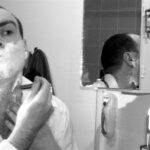Say goodbye to bad body smells with these effective tips for men. Discover natural ways to reduce body odor and smell great.
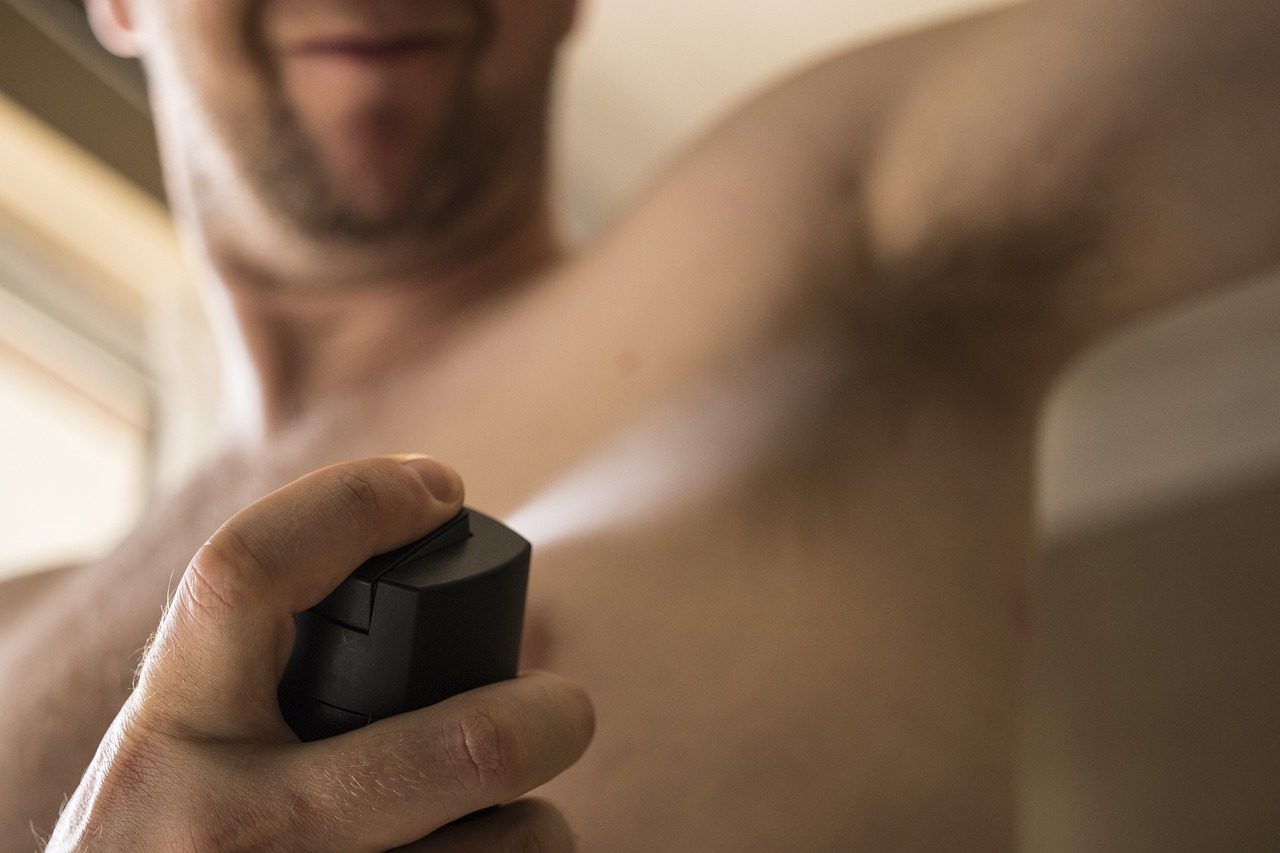
There are many reasons why a man might not smell good, like bad breath, sweaty feet, the wrong cologne, an odorous workplace, or (the most obvious) B.O.
Fortunately, getting rid of bad body smells is easier than you think.
This article will tell you what causes body odor, share several ways of reducing it—many of which are totally natural—and how to keep it under control.
Being men doesn’t mean we can’t smell great most of the time!
How to Get Rid of Body Odor
When complaining about body odor (or B.O. for short), we’re referring to the obnoxious, cloying stench of stale sweat. It cannot be masked by strong fragrances, and even then, smelling good does not mean reeking of cologne; especially not if you’re a man.
If you want to minimize body odor, start by attacking its cause.
What Causes Body Odor?
In itself, sweat doesn’t smell bad, but it does create an ideal breeding ground for bacteria.
The cause of body odor is the bacterial decomposition (or breaking down) of a fatty substance called sebum, which is basically a combination of sweat and fat secreted through the skin’s sebaceous glands. Added to the mix are decomposing shed skin and hair cells, which makes matters worse.
Bacteria thrive in a moist environment, so they’ll obviously be prevalent in areas of high perspiration, like armpits, feet, and the groin. This is exacerbated by the fact that these body parts are usually covered by clothing.
Have you ever wondered why men seem to be more prone to bad smells than women? One reason is because men have more sweat glands, which are also larger. This, however, has little to do with the smell itself or its intensity, which is determined by various factors, including genetics, diet, environment, stress, clothing, toiletries, and lifestyle.
How Is Sweat Produced?
Your body secretes two different kinds of sweat from two different types of sweat gland: eccrine and apocrine.
Eccrine Glands
Eccrine glands cover most of the body, producing an odorless sweat that consists of salt and water.
Secretion is stimulated not only through heat and humidity, but also stress, anxiety, nervosity, anger, sexual arousal, and certain foods.
Apocrine glands
Apocrine glands exist where body odor tends to be more cloying, like the groin and armpits, as well as the nipples, eyelids, and ear canal.
Although the substance secreted consists of lipids, protein, carbohydrates, and ammonium, this in itself isn’t the cause of odor. It’s the bacterial breakdown of the lipids and proteins, which results in the release of the ill-smelling vapors we call B.O.
A Man’s Guide to Smelling Good
Smelling good isn’t actually all that difficult. Just follow these simple rules:
- Bathe or shower daily, paying attention to where you use soap.
- Trim body hair by all means, but never shave it.
- Shave your head if you work in an odorous environment or smoke tobacco. Otherwise, wash your hair daily or apply dry shampoo.
- Deodorize your underarms.
- Make sure all your toiletries and cologne are of the same fragrance, or choose unperfumed toiletries that won’t clash with your cologne.
- Your cologne should always be discreet and never cheap.
- For fresh breath, meticulous oral hygiene is essential. Adopt the habit of “pulling” coconut oil each morning; more about that later.
- Maintain a healthy diet and drink plenty of water. Drink alcohol in moderation, if at all.
- Wear foot deodorant if you suffer from sweaty feet, and place charcoal inner soles in your shoes.
- Launder your clothes regularly, change your underwear daily, and never use fabric softener.
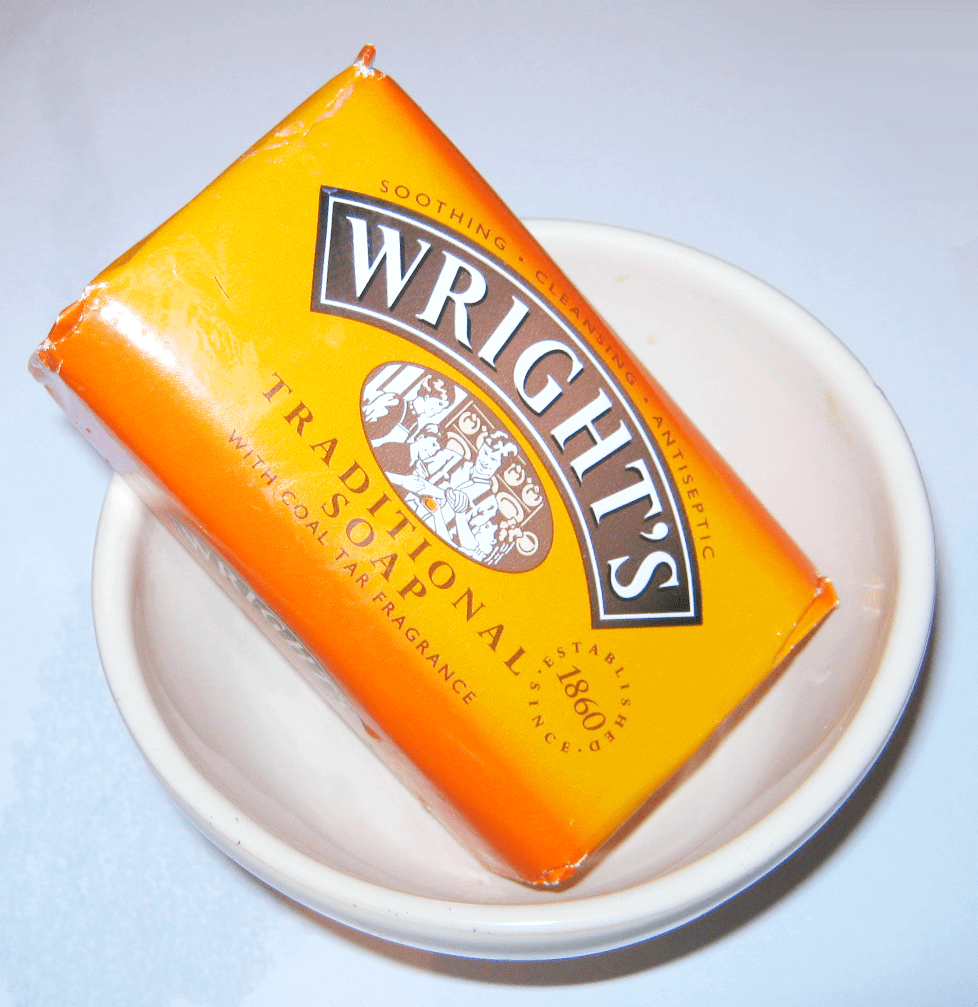
1. To Smell Good, Men Should Bathe or Shower Daily
Only a high standard of personal hygiene can keep body odor at bay, but soap may not always be your best option.
Daily showering and bathing washes away decomposed cells and sebum, which gets rid of odor, but using soap-based products can be counterproductive in the long term.
Soap is composed of oils or fats mixed with strong, antibacterial alkali solutions, such as sodium hydroxide (or lye, as it’s better known). Working as a surfactant, it enables water to mix with excess oils on the skin in order that these can be rinsed away.
Although soap removes bacteria, it also raises the skin’s pH level, creating the sort of alkaline environment in which bacteria breed most rapidly.
Therefore, cleanse your armpits and groin area with a soap-free body wash. This allows the skin to retain its natural, slightly acidic pH level of 5.5, making it more difficult for bacteria to colonize.
Personally, I wash my underarms using a face wash with salicylic acid, which seems to have the best effect. But my favorites for my body are and pine tar soap, the earthy smell of which is great for men, and curd soap.
2. Trim Body Hair When Necessary, But Don’t Shave
As a man, I would never want to shave my body hair, but if you do, it will not make you smell better. In fact, it could make you smell worse.
Hair absorbs moisture, which keeps skin dry and minimizes bacteria—it’s true that bacteria breed on hair, too, but reproduction is slower than on skin, thus producing less odor.
Women have to remove body hair for aesthetic reasons, but men usually don’t. If your hair “down there” and under your arms is bushy and unsightly, trim instead of shaving.
3. Wash Your Hair Daily or Use Dry Shampoo
You’ll have less than fragrant hair if you smoke tobacco or work in a fatty kitchen or other environment where pungent smells cling.
As a man, you can solve the problem by shaving your head. If that’s not an option for you, washing your hair once a day with a mild shampoo should get rid of nasty smells.
If your hair is oily, daily washing probably isn’t a good idea since it can make the condition worse. In that case, freshen it up between washes with dry shampoo. Batiste is the most popular brand among men and can be found at most drugstores; it makes hair smell good, absorbs excess grease, and adds body.
4. Deodorize Your Underarms
There’s more than one way to deodorize the underarms.
Using an antiperspirant deodorant is the most obvious. It not only masks underarm odor; it also helps reduce sweat production, thus minimizing the ability of bacteria to breed. Use daily in the morning and consider a second application after strenuous activities or stressful situations.
If you don’t want a product containing aluminum, choose a deodorant without an antiperspirant component.
If you’d prefer a more natural product, there are many organic deodorants containing no artificial ingredients while proving as effective as those that do; the only drawback is that they tend to be a little more costly.
Alternatively, you could make your own: simply mix baking soda and cornstarch to a ratio of 1-to-1 and apply to your armpits with a cotton ball or an old shaving brush.
But the most effective deodorant, according to my experience, is zinc oxide paste. Just smear a little into your armpits to remain odor-free for up to a week.
5. Align Your Body Wash, Deodorant, and Cologne
Another key element of smelling good is making sure your body wash and deodorant are of the same fragrance as your cologne, or at least don’t clash with it. And always choose a high-end fragrance if you want to make a positive impression.
If you’re not willing to pay for high-end toiletries, as I am not, use fragrance-free products. Unscented soaps, body washes, and deodorants won’t clash with your cologne (should you choose to wear one), and are healthier for the skin. Deodorants formulated for sensitive skin, for example, are completely without added perfume, alcohol, and aluminum.
How to Apply Cologne Properly
As already mentioned, smelling good does not mean reeking of perfume. Cologne will only make you seem more attractive if you keep it subtle; its effect should work only on the subconscious and should never be the first thing others notice about you.
All you need is a quick squirt on your inner wrists and the pulse points of your neck. If you moisturize these areas beforehand, the fragrance will last longer.
I’m even more discreet with mine: I spray it once into the air before my face, then walk into the mist.
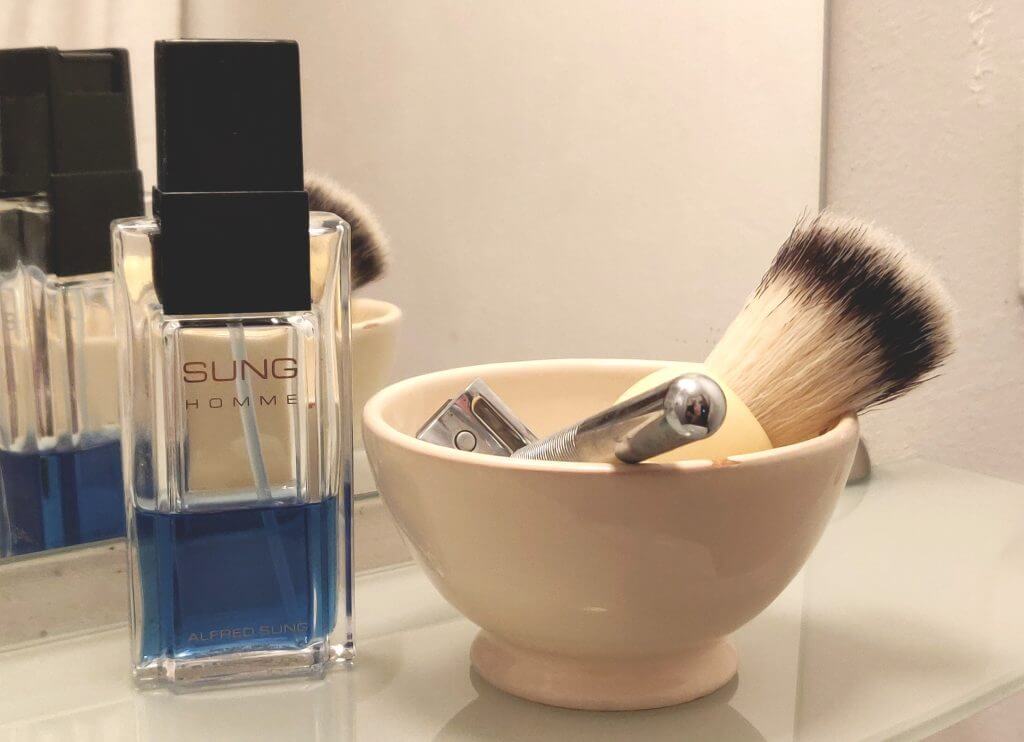
6. Prevent Bad Breath
Bad breath is one of the most offensive bad smells. It’s usually the result of a dry mouth caused by medications or insufficient fluid intake. Drink plenty and chew cinnamon-flavored gum; cinnamon neutralizes bad breath more effectively than mint flavors. Gum is also great after meals if you don’t have a toothbrush at hand.
Of course, it goes without saying that you should brush your teeth at least twice a day and floss before going to bed, but have you heard of “pulling?” You should do this, too, if you want sweet smelling breath all day long.
Consider “Pulling” With Coconut Oil
“Pulling” originates from the Indian traditional medicine system called Ayurveda, and is the practice of swishing oil around the mouth for 20 minutes in the morning before eating or cleaning your teeth. It literally “pulls” bacteria from teeth and gums and frees the tongue of vile-tasting (and smelling) “fur.” Use coconut oil, which is antibacterial, and always spit it out after you’ve finished—never swallow.
Pulling with oil is much healthier than using a gargle or mouthwash, and its cleansing effect is noticeable the whole day through. It’s also more comfortable than a tongue scraper.
7. Eat Healthy and Drink Lots of Water
The smell of certain foods can linger for up to 12 hours on the breath and 48 hours on the skin, the latter being more noticeable in men than women due to more numerous and larger sweat glands.
Before important dates, avoid foods with high levels of odor-causing sulfurous compounds. These are the ones that permeate sweat and saliva. They include onions, garlic, red meat (particularly lamb), and all processed foods, as well as artificial flavorings and preservatives.
Here are some additional tips for cleaner-smelling skin and breath:
- Drinking plenty of water flushes the system to keep both the skin and breath smelling fresh. Aim to consume the recommended eight 8-ounce glasses a day. In case you find this difficult, it’s easier to get down flat rather than carbonated water.
- Apart from its other numerous health benefits, green tea is a great preventative remedy for bad breath. Just one or two cups a day alkalizes the mouth, thus hindering the colonization of odor-causing bacteria.
- The more alcohol you consume, the less efficiently the liver can process it. As a result, a certain amount is released through the sweat glands, which is what causes the telltale alcohol stench that follows a night out. To make matters worse, alcohol-induced dehydration leads to a dry mouth, which, as previously mentioned, is a cause of bad breath. When socializing, drink in moderation, if at all.
8. Deodorize Sweaty Feet
Socks smell atrocious in next to no time if your feet are sweaty.
Unless you want to knock people out the moment you take off your shoes, use a deodorizing foot cream or spray. Products with added menthol work best.
Equally effective is the baking soda and cornstarch remedy mentioned above as an alternative for underarm deodorant. Just apply to the soles.
Pay attention to your footwear, too; doing so may not only minimize the problem, it could solve it completely:
- Wear moisture-wicking socks made from wool, bamboo, or synthetic blends, changing them more than once a day if necessary.
- Avoid plastic shoes and sneakers. Choose leather or canvas if you’re prone to sweaty feet.
- Use charcoal inner soles; these absorb odor.
- Whenever possible, leave your socks off during warm weather and wear sandals.
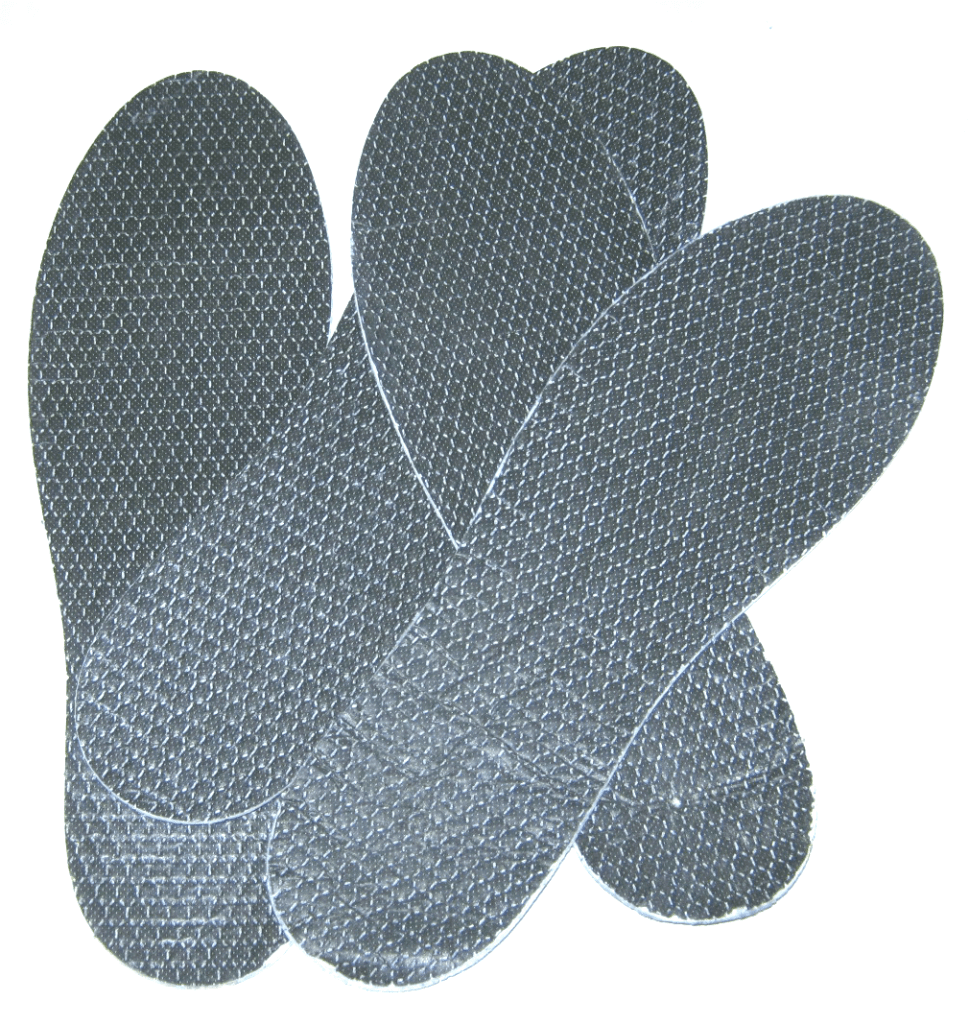
9. Make Sure Your Clothes Smell Good
Odor-causing bacteria will continue to breed on your clothes after you’ve undressed, which is why they need regular laundering.
Clothes worn next to the skin are worst affected, so change your underwear daily. If you need a dress shirt more than once before laundering, wear it over an undershirt.
If you’re a smoker or find yourself in a smoky atmosphere, the tobacco stench will cling to your clothes. Garments like suits and coats that can’t be washed or cleaned often should be hung out to air whenever possible to freshen them up.
Not only do unpleasant odors cling to clothes, but also towels, bedsheets, and pillowcases. Launder regularly, not only for reasons of hygiene but also to prevent stale smells from transferring to your skin and hair.
Don’t allow your clothes to be rinsed with fabric softener—it makes a man smell “mothered,” which is never becoming.
© 2024 J. Richardson
Related Posts
Disclaimer
The information provided by The Neat and Tidy Man (“we,” “us,” or “our”) on theneatandtidyman.com (the “site”) is for general informational purposes only. While we endeavor to keep the information up to date and correct, we make no representation or warranty of any kind, express or implied, regarding the completeness, accuracy, reliability, suitability, adequacy, validity, or availability of any information on the site. Under no circumstance shall we have any liability to you for any loss or damage of any kind incurred as a result of the use of the site or reliance on any information provided on the site. Your use of the site and your reliance on any information on the site is solely at your own risk.



